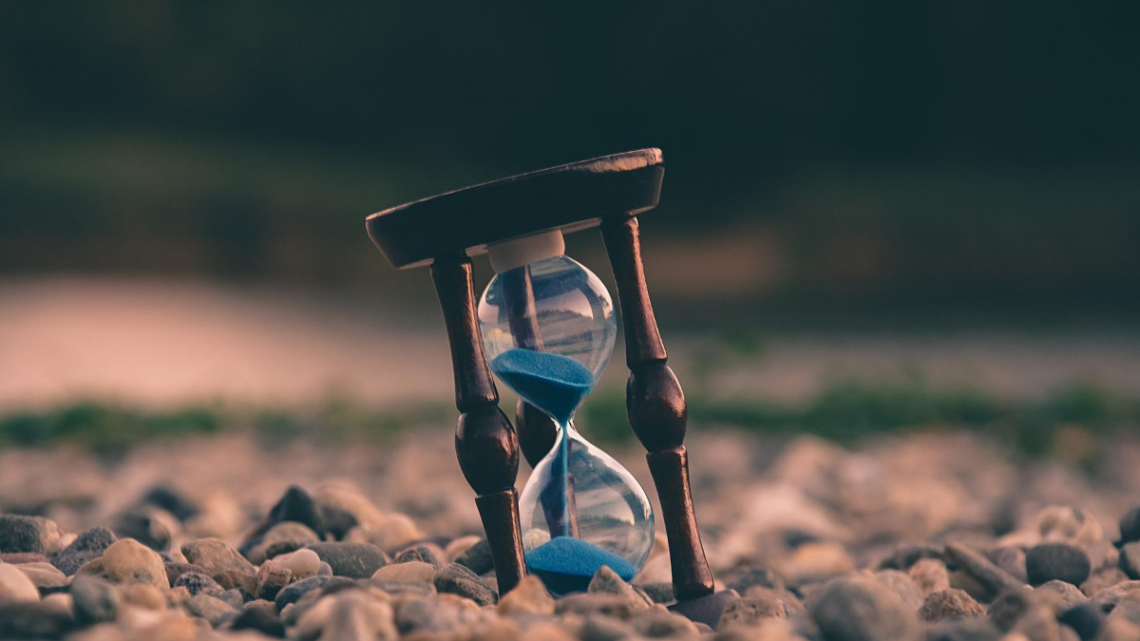
Time Management or Prioritization? Which is the Actual Challenge?
Unknown
Time waits for no one
During my coaching practice, I came to realize that many people struggle with time management, or that’s what they thought. Once I started asking questions and getting to know people’s lifestyles, I soon realized that it’s not the time that they need to manage but rather their priorities. If you think about it, time is neutral. It does not favor one person over the other or it does not pass faster on a busy day and slower on a lazy day. It’s our impression. It has a fixed rhythm and we can’t really control it. So, truth to be told, we can’t really manage time. What we can do, however, is manage ourselves by setting priorities and becoming more productive in the time we have. And no, being busy does not always equate to being productive.
Below are 12 tips for anyone who wants to use their time more effectively and become more productive.
1. Know what you need to do
To start off, create an inventory of tasks that you need/want to do which are related to your job, life vision, or goals. This process should be very intentional and you should list items that will bring meaning and fulfillment to you. If you use a planner to record your yearly, monthly, weekly, or daily goals, you can list these tasks under each relevant period. You should refer back to this list when planning your time and daily activities. Whenever you feel lost or don’t know what to do with your free time, you can refer back to this inventory and pick up a few items to make productive use of your time.
2. Determine your productive hours
One way to maximize your time is to know when you are the most and least productive. This way, you can plan activities accordingly and accomplish more without putting too much pressure on yourself. People are different. Some are early birds while others are night owls. Some are highly productive in the early hours while others can get more done in the late evening. Observe your productivity levels throughout the day and identify your peak hours. Then, plan your most important tasks during these hours, remove any distractions, and deeply focus on the task at hand. These are the 20% of the tasks that will bring 80% of your results. More on these below.
3. Set realistic expectations
When setting daily goals and activities, be realistic with yourself. Can you really finish all 20 items on your to-do list? And are all of them equally important and urgent? We are human, we have emotions and mood swings, things happen, life gets in our way and we get distracted. It is important to be realistic and to remember that real-life is not an ideal situation. You might not get everything or anything done. Be cool with that. Make your list of activities short and allocate enough time while approaching it with the most important and urgent items first.
4. Prioritize
Once you have your to-do list, prioritize them in order of importance and urgency. If you were not able to get much done today, what are 1-3 things that you have to complete, and when completing these tasks, you will feel accomplished? The sheer number of items you tick off might not bring the same level of satisfaction as ticking off items that have higher importance to you. You might have heard of the 80/20 rule, known as the Pareto Principle. It says that 80% of your results and fulfillment will come from 20% of your efforts. So, by prioritizing your most important tasks (20%) you can maximize your gains and move closer to your goals.
5. Focus on one thing at a time
Multitasking is a myth. We can’t really focus on two things at the same time and do them equally well. Instead of constantly shifting your focus from one task to another, concentrate on one job and do it well. When you start working on something, it is common to remember all the other things you need to do – you have to call a friend or send an important email. Whatever it is, resist the urge to act on these thoughts and ‘park them’ by writing them down. This way, you can refocus your brain on the task and reassure yourself that you will not forget the new idea and you will get back to it later.
6. Remove distractions
Given that our focus is limited and we can’t multitask, it is a good idea to block any distractions that might lower our attention and productivity. Nowadays, we are on so many different platforms and social media channels and constantly receive notifications whenever someone posts or sends a new message. While keeping up is important, it can be detrimental to your focus and productivity. To maximize your time and finish your important tasks during your peak hours, remove any distractions. You can turn off notifications, use website blocker apps, switch off your phone, and check your emails or social media feed during specific times of the day.
7. Create routines
Depending on the time of the day when you are the most productive, you might want to create routines that will make it easier for you to get more done. I am a morning person. So, I created morning habits that help me to automatize some of my activities without exhausting myself by making too many trivial decisions. I know exactly what I need to do once I get up and I follow this routine almost every day. During the week, for example, I stick to 2 different types of breakfasts so I don’t have to think much about what to eat and I can still alternate in case I get bored.
8. Take breaks
We have limited physical and mental capacity to focus on something for too long and remain productive. Too much work can lead to burnout while too much break can hinder your ability to finish things. Try the following approaches to find the right balance for you. One method is 90/10 where you work for 90 minutes and takes a 10-minute break. Another is the Pomodoro technique, where you focus on a task for 25 minutes and take a 5-10 minutes break. You can use an alarm to remind yourself when the time is up. The key here is to work on the task without interruption while having regular short breaks to give your brain rest.
9. Exercise
It is important to recharge your batteries as you work on your important goals. You can do this by taking breaks, having healthy snacks, and doing physical activity. Exercising has positive effects on productivity as it promotes increased blood flow to the brain. It can also help reduce anxiety and stress through the release of serotonin, which is a neurotransmitter in the brain that stimulates your mood and emotion. Through regular exercise, you can increase your energy level and feel more awake and focused at work.
10. Get enough sunlight
Another way to increase the production of serotonin in your brain is through sunlight. Serotonin, also known as the ‘happiness hormone’, can help to improve your mood and focus while also minimizing the risk of depression. This is why it is common for people to feel down or depressed during the winter. The positive effects of sunlight on work productivity might also explain the increase in office buildings with big windows. So, use your breaks to get some sunlight either by opening your windows or going out for a walk.
11. Get quality sleep
I don’t know about you, but I can’t function properly without enough sleep. Quality sleep can help you rest, rejuvenate, and improve your focus and productivity at work. A recent study found that 16 minutes of sleep loss can decrease your productivity the next day by limiting your ability to focus and make effective decisions. It can also lead to increased levels of stress and conflict. And it’s not only the night sleep that is useful. Even 20-30-minute naps during the day can boost your alertness and productivity.
12. Stop to reflect
It is easy to get carried away with ticking off items from your to-do list. It is important to take the time to reflect on the activities you are pursuing and whether your approach is yielding the results you want. Are you working on tasks that really matter or are you simply trying to cross off as many items as possible? Which habits help you to be more productive and which inhibit your ability to get things done? How are you taking care of your physical and mental health and minimizing the risk of burnout or work-related stress? How else can you make the best use of your time?
While we can’t manage time, we can surely use our time more effectively by prioritizing our activities, focusing on what truly matters, and removing distractions. Remember, it is better to get a few but important things are done instead of finishing many tasks that don’t really add value to your life.
You May Also Like

Achieve Your Goals Through a Mastermind Group
March 1, 2022
3 Reasons Why It’s Hard to Change Your Behavior and What to Do About It?
December 3, 2020

